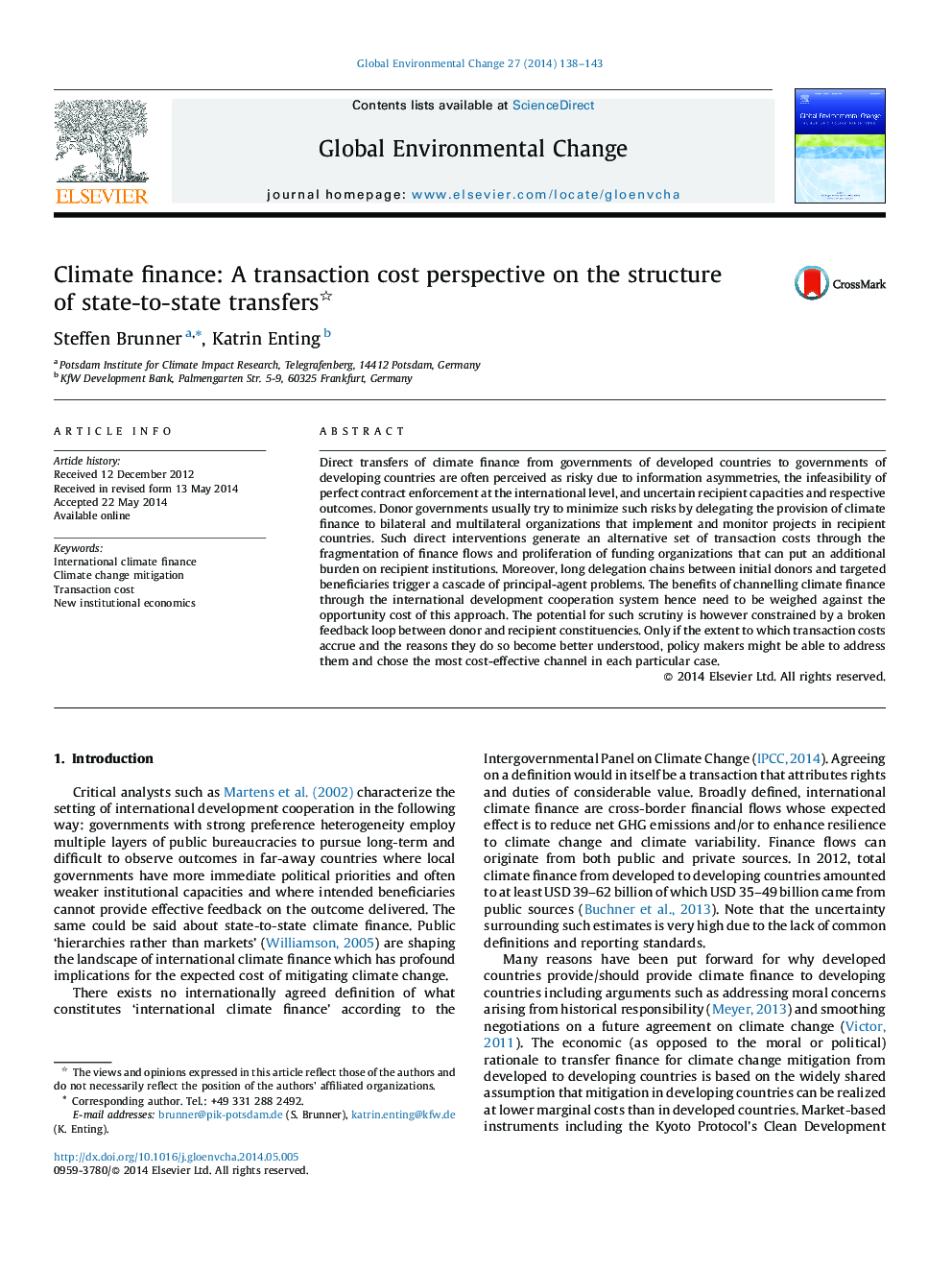| Article ID | Journal | Published Year | Pages | File Type |
|---|---|---|---|---|
| 7470378 | Global Environmental Change | 2014 | 6 Pages |
Abstract
Direct transfers of climate finance from governments of developed countries to governments of developing countries are often perceived as risky due to information asymmetries, the infeasibility of perfect contract enforcement at the international level, and uncertain recipient capacities and respective outcomes. Donor governments usually try to minimize such risks by delegating the provision of climate finance to bilateral and multilateral organizations that implement and monitor projects in recipient countries. Such direct interventions generate an alternative set of transaction costs through the fragmentation of finance flows and proliferation of funding organizations that can put an additional burden on recipient institutions. Moreover, long delegation chains between initial donors and targeted beneficiaries trigger a cascade of principal-agent problems. The benefits of channelling climate finance through the international development cooperation system hence need to be weighed against the opportunity cost of this approach. The potential for such scrutiny is however constrained by a broken feedback loop between donor and recipient constituencies. Only if the extent to which transaction costs accrue and the reasons they do so become better understood, policy makers might be able to address them and chose the most cost-effective channel in each particular case.
Related Topics
Life Sciences
Environmental Science
Environmental Science (General)
Authors
Steffen Brunner, Katrin Enting,
